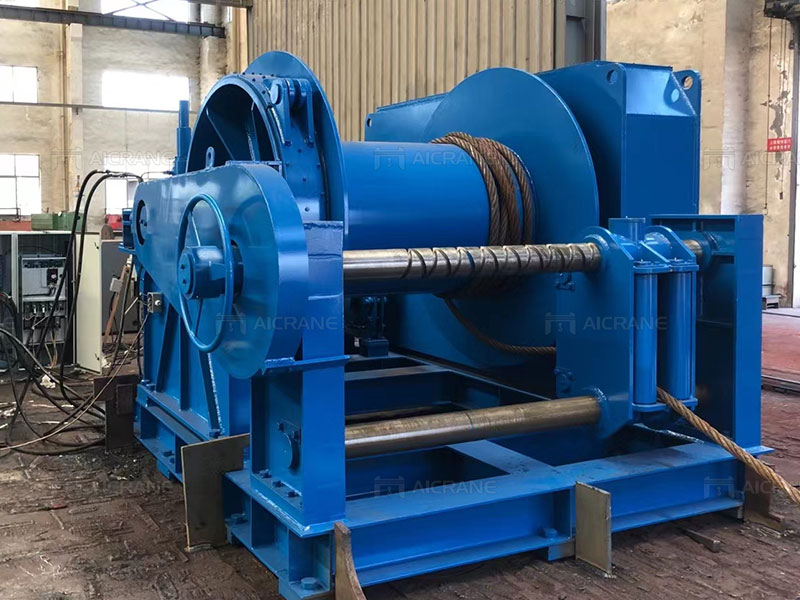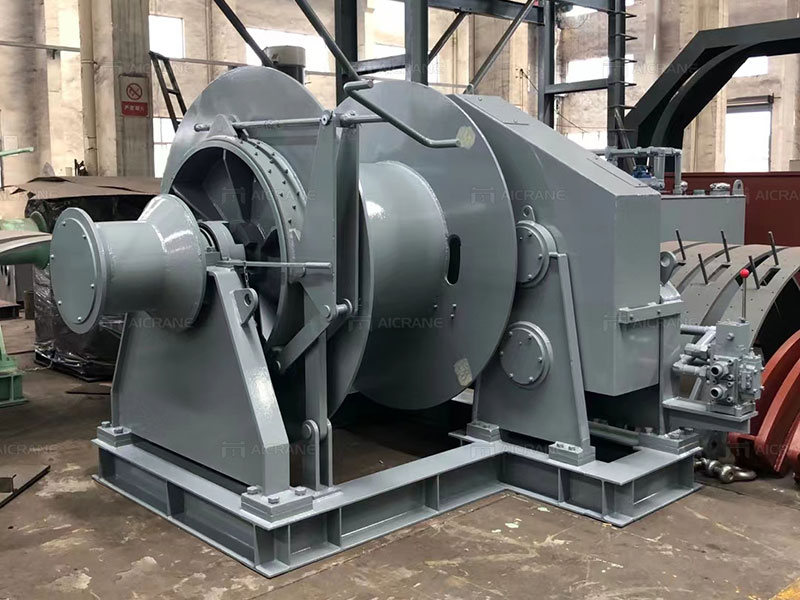In the vast expanse of the maritime industry, where colossal vessels navigate unpredictable waters, towing winches emerge as vital tools in ensuring the safe transport and maneuvering of vessels, barges, and offshore structures. These winches play a crucial role in towing operations, which are inherently complex and laden with risks. To mitigate these risks and ensure the safety of personnel, vessels, and cargo, the implementation of stringent safety measures is paramount. In this article, we delve into the significance of safety in towing winch operations, exploring the multifaceted measures that must be taken to safeguard lives, assets, and the environment.
Understanding Towing Winches
Towing winches are robust mechanical systems designed to exert controlled force for the purpose of towing or pulling heavy loads. These loads may include vessels in distress, barges laden with cargo, or even offshore structures during installation. Towing winches are typically equipped with powerful motors, high-capacity drums, and intricate hydraulic or electric systems that enable precise control over the towing process.

The critical nature of towing operations necessitates the utmost vigilance in terms of safety. Failure to adhere to safety measures can result in a cascade of disastrous consequences, including injury to personnel, damage to vessels, environmental pollution, and financial losses. Therefore, a comprehensive approach to safety is not merely an option but an ethical obligation in the maritime industry.
The Importance of Safety Measures
1. Personnel Safety:
The safety of personnel involved in towing operations is paramount. Towing winches are complex machinery with numerous moving parts that can pose significant risks if not handled properly. Adequate training and familiarization with the winch’s operation and safety protocols are essential for those operating or working near the equipment. Ensuring that crew members are aware of potential hazards and are equipped with the necessary personal protective equipment (PPE) can prevent accidents and injuries.
2. Vessel and Cargo Protection:
Towing winch failures or mishandling can lead to collisions, cargo shifts, or even capsizing of vessels, resulting in significant damage or loss. Properly maintained and operated marine winches contribute to controlled and steady towing, minimizing the risk of sudden movements that could endanger the towed vessel, cargo, or the towing vessel itself.
3. Environmental Preservation:
Environmental concerns in maritime operations are paramount, given the potential impact on marine ecosystems and sensitive coastal areas. A malfunctioning winch can lead to the release of pollutants, such as oil and hazardous materials, into the water. Proper maintenance and adherence to safety measures help prevent such incidents and ensure that the environment is safeguarded.
4. Preventing Accidents and Collisions:
Towing operations often occur in congested waters, where vessels of various sizes and types navigate. Failing to implement safety measures can result in collisions between vessels, posing a risk to crew members, property, and the marine environment. By maintaining clear communication, adhering to navigational rules, and following proper towing procedures, the likelihood of such accidents can be significantly reduced.

Essential Safety Measures
1. Regular Inspections and Maintenance:
Frequent and comprehensive inspections of towing winches are essential to identify wear and tear, corrosion, and potential issues. Scheduled maintenance should be carried out to address any problems promptly. Preventive maintenance ensures that the winch operates at its optimal capacity, reducing the risk of sudden failures during towing operations.
2. Proper Training:
Operators and crew members involved in towing operations should receive thorough training on the winch’s operation, emergency procedures, and safety protocols. They should be well-versed in the equipment’s limitations, load capacities, and potential hazards. This training empowers them to make informed decisions during towing operations, prioritizing safety at all times.
3. Clear Communication:
Effective communication is pivotal in towing operations, especially when multiple vessels are involved. A breakdown in communication can lead to misunderstandings, accidents, or the inability to respond swiftly to changing conditions. Crew members should use standardized communication protocols and maintain constant contact to ensure a coordinated and safe towing process.
4. Load Monitoring Systems:
Towing winches equipped with load monitoring systems provide real-time data about the load being towed. This information helps operators make informed decisions about the towing process, preventing overloading and ensuring that the winch operates within safe parameters.
5. Emergency Procedures:
Every towing operation should have well-defined emergency procedures in place. Crew members should be familiar with these procedures, including actions to take in case of equipment failure, adverse weather conditions, or unforeseen incidents. Regular drills and simulations can enhance the crew’s preparedness to respond effectively to emergencies.
6. Risk Assessment:
Before commencing any towing operation, a thorough risk assessment should be conducted. This assessment takes into account factors such as weather conditions, traffic density, and the condition of the electric and hydraulic towing winch. By identifying potential risks, operators can devise strategies to mitigate them and ensure safer operations.
Conclusion
Towing winches are the unsung heroes of the maritime industry, orchestrating the safe movement of vessels and cargo across challenging waters. However, their efficiency and reliability are inextricably linked to the rigorous implementation of safety measures. In the pursuit of smooth and incident-free towing operations, adherence to safety protocols, comprehensive training, and diligent maintenance stand as non-negotiable imperatives. By recognizing that the foundation of successful towing lies in the preservation of lives, assets, and the environment, the maritime industry can foster a culture of safety that echoes across the waves.